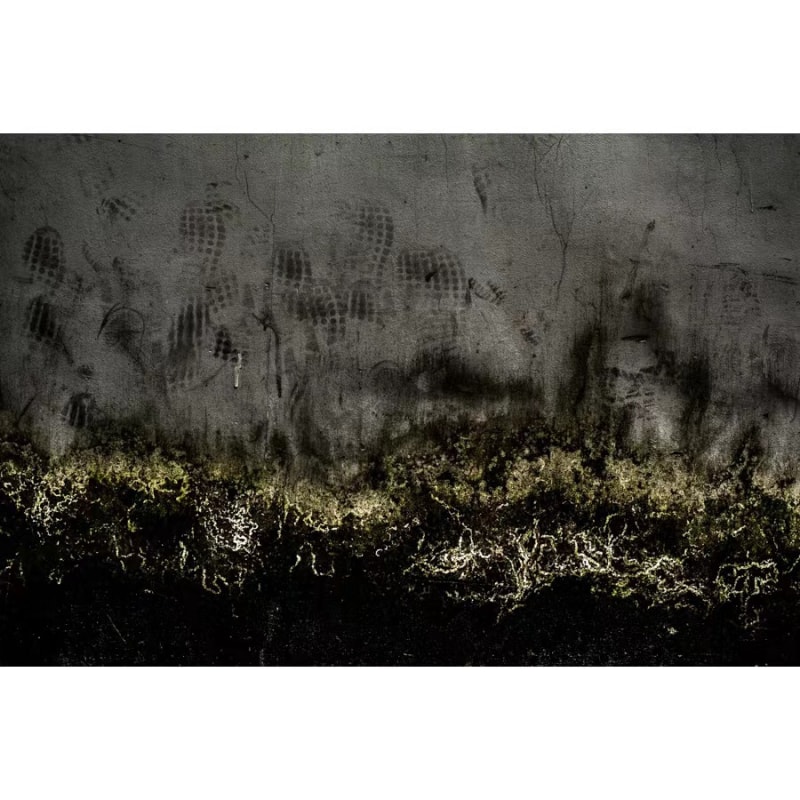Preface
Text/Li Zijian
Shuguang is a spontaneous person. He rarely uses cellphone and prefers face-to-face communication. When talking about his works, he sometimes goes on and on, yet sometimes hesitates to speak. He always emphasizes the point that his works attempt to present something that is constantly changing beyond words.
All the works in this exhibition were selected from his series "Beyond Reality". In contrast to the common understanding of photography, in this series, Shuguang records the marks of a series of creative works on the street. Over six years, he travels by motorbike through Fuzhou — a city he is familiar with, continuously observing and sensing — then spots some unnoticed surfaces of the city's walls to paint out the feelings he intuited. He works from a range of materials, sometimes painting with oil purchased from painting shops, occasionally scraping straightly onto the walls, and for most time he uses objects in the scene, such as charcoal, soil, moss, and rainwater, as his mean of self-expression.
In this way, we see the power of these works embedded in Shuguang’s intuition, capturing a single moment in feelings that are continuously changing in space and time, and reflecting it on the insignificant walls of the city, between improbable occurrences and intentional choices, where the world of the spirit appears in the physical world. By capturing these moments in photography, the transient sensory impact keeps repeating in the time and space within the photos themselves.
This intuitive feeling always remains outside of language. Shuguang always avoids directly describing or recalling his process of creating works in the conversation. As if once these feelings fall into the signified network of language, they’d become insipid. Indeed, figurative descriptions do not suit Shuguang's works. Those works present the rich fragments of possibilities prior to the symbolic order, or the residue that produced when Shuguang's spiritual world collides with reality.
In Heidegger's philosophy, he refers to the word “ecstasy” to describe how the past, the present and the future unite in the present being of our lives. The present being of us contains both our plans for the future and the past already happened. In the present moment, when we act and plan for the future according to our past experiences, time ecstasies in our present existence, and we also feel time in this way. We see this in Shuguang's works, full of the energy of action, where the inexpressible feeling of past life and motivation of creation for future burst forth in the present moment of action, and these spiritual appearance ecstasies in the moment of creation.
Shuguang's works remind us of the importance of intuition and feelings that are beyond language in a constantly changing, dynamic world.
